Nixon (1995) Online
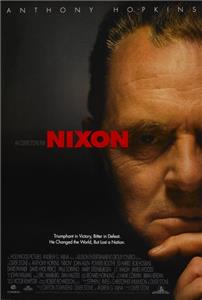
Director Oliver Stone's exploration of former president Richard Nixon's strict Quaker upbringing, his nascent political strivings in law school, and his strangely self-effacing courtship of his wife, Pat. The contradictions in his character are revealed early, in the vicious campaign against Helen Gahagan Douglas and the oddly masochistic Checkers speech. His defeat at the hands of the hated and envied John F. Kennedy in the 1960 presidential election, followed by the loss of the 1962 California gubernatorial race, seem to signal the end of his career. Yet, although wholly lacking in charisma, Nixon remains a brilliant political operator, seizing the opportunity provided by the backlash against the antiwar movement to take the presidency in 1968. It is only when safely in office, running far ahead in the polls for the 1972 presidential election, that his growing paranoia comes to full flower, triggering the Watergate scandal.
| Cast overview, first billed only: | |||
| Anthony Hopkins | - | Richard M. Nixon | |
| Joan Allen | - | Pat Nixon | |
| Powers Boothe | - | Alexander Haig | |
| Ed Harris | - | E. Howard Hunt | |
| Bob Hoskins | - | J. Edgar Hoover | |
| E.G. Marshall | - | John Mitchell | |
| David Paymer | - | Ron Ziegler | |
| David Hyde Pierce | - | John Dean | |
| Paul Sorvino | - | Henry Kissinger | |
| Mary Steenburgen | - | Hannah Nixon | |
| J.T. Walsh | - | John Ehrlichman | |
| James Woods | - | H.R. Haldeman | |
| Brian Bedford | - | Clyde Tolson | |
| Kevin Dunn | - | Charles Colson | |
| Fyvush Finkel | - | Murray Chotiner |
Oliver Stone said he voted for Nixon in 1968, based on his pledge to end the Vietnam War.
A major scene that was unable to be filmed was of Nixon and his family watching Patton (1970), Nixon's favorite movie, and one he watched repeatedly. The scene would've highlighted Patton's speech at the beginning of the film in which he says "Americans have never lost and will never lose a war, because the very thought of losing is hateful to Americans" which would have had resonance with Nixon's line "I will not be the first President to lose a war." But George C. Scott did not relinquish his image rights for Patton, and the scene could not be filmed.
Diane Disney, in a rare public criticism of her late father Walt Disney's company (which released the film under its Hollywood Pictures banner, and in which she was a major stockholder), released a statement soon after the film opened, expressing her extreme displeasure with it, and that the Walt Disney Company was involved in its release. She believed the film was mean-spirited and biased. She also extended a personal apology on behalf of the Disney family to the Nixon family. Both families were close, and often socialized together, so the Disneys knew the Nixons personally. Mrs. Disney thought that the film grossly exaggerated President Nixon's character faults, and ignored what she believed to be many of his redeeming qualities.
The film was completed around the time Richard Nixon died in 1994. The footage of his funeral at the end, along with a narrated epilogue, was added several months before the film's release.
To gain the feel of Richard Nixon, Anthony Hopkins watched on tape almost every speech Nixon ever made several times. He also met some people who knew Nixon who could lend Hopkins some insight on him.
The film was denounced by Richard Nixon's daughters.
While shooting the scene where Nixon and Jones confront each other, the lights were aimed straight down at coffee tables in front of the fur upholstered couch. The lights were so powerful that the rug beneath one of the tables started smoking. In the middle of the first take, an extra noticed the increasing amount of smoke, and muttered "fire" quietly during a pause between lines of dialogue. James Woods heard this and stopped the scene before the rug caught fire.
John Malkovich was offered the role of Nixon, but Sir Anthony Hopkins was cast while he was considering it.
Tom Hanks was offered the part of Richard Nixon, but turned it down.
Oliver Stone briefly considered Gene Hackman, Robin Williams, Gary Oldman, and Tommy Lee Jones for the lead role.
When Oliver Stone saw Elu kuldsed hetked (1993), he decided to cast Sir Anthony Hopkins, because he was able to exude the kind of inner conflict that he was looking for.
Jack Nicholson was offered the role of Richard Nixon, but declined.
Scenes which featured Sam Waterston as Richard Helms were deleted prior to the film's release, but later reinstated on video cassette and DVD versions. At the time of the theatrical release, Richard Helms was still living, and hotly objected to his portrayal in the film.
Joe Pesci turned down the role of J. Edgar Hoover.
Sir Anthony Hopkins casting as Richard Nixon initially met with much criticism. Early in the shoot, Paul Sorvino had lunch with Hopkins and offered suggestions as to how Hopkins should replicate Nixon's accent. This made Hopkins so nervous, he actually quit the production, though Oliver Stone begged him to stay on. Upon the film's release, Hopkins' performance garnered much praise, and even an Oscar nomination.
When Nixon returns from China and goes to the press area aboard Air Force One, the reporter in the front row on the left side can be seen knocking his head on the overhead compartment. This was the first of three takes of this shot. After Oliver Stone noticed on playback that Jim (the reporter) had bumped his head, Stone called for another take, which was followed by a third, "just to make sure". Ironically, the first take, with Jim the reporter's head bump, is the one that made it into the final film.
Oliver Stone wanted Ed Harris for the role of H.R. Haldeman.
Warren Beatty suggested Joan Allen for the role of Pat Nixon. Allen was called to perform a reading of the script opposite Beatty, who was considering taking the title role. Oliver Stone was so impressed by Allen's performance, he offered her the role.
In an interview with Premiere Magazine, Oliver Stone outlined many elements of Richard Nixon's life and political decisions that informed his film. Among other things, Richard Nixon's reserved personality was a function of the death of his beloved older brother Harold. Nixon grieved over the deaths of John F. Kennedy and Robert F. Kennedy, while also being aware he may have lost the 1964 Presidential election to J.F.K. (if it had taken place) and the 1968 race to R.F.K. He recognized that the U.S. was going to enter an era of less prosperity, and tried to end the Cold War for that reason. He was "lonely, isolated, kind of mad", and ultimately, he was both victim and villain.
In Hong Kong, the movie was given a title that translated to "The Big Liar".
When Nixon is speaking with C.I.A. Director Richard Helms (Sam Waterston), Helms quotes from his favorite poet, William Butler Yeats, to whom Sir Anthony Hopkins is related.
Oliver Stone plays the off-screen interviewer of Hannah Nixon.
E.G. Marshall was born less than a year after the real John Mitchell, and at eighty years old when he filmed the part, he was an older man than Mitchell ever was, who died in 1988, at the age seventy-five.
The film's closing credits dedication states that this picture is dedicated: "For Louis Stone, 1910-1985". Louis Stone, a stockbroker, was the father of Oliver Stone. Louis Stone was also a dedicatee in Stone's earlier films Salvador (1986) and Wall Street (1987).
Oliver Stone's first two choices to play Richard Nixon were Warren Beatty and Jack Nicholson. If Beatty had taken the role, this movie would have been yet another hugely expensive box-office flop in his career.
Boris Sichkin played Leonid Brezhnev in another Nixon-themed movie: The Final Days (1989).
Second of three Oliver Stone movies featuring James Woods. The others being Salvador (1986) and Any Given Sunday (1999).
One of three Oliver Stone films (to date, September 2017) about an American President whose title references the subject of the movie. The first was JFK (1991) (John F. Kennedy), the second was this movie (Richard Nixon), and the third was W. (2008) (George W. Bush).
Dan Hedaya played Richard Nixon in Dick (1999), while Saul Rubinek played Henry Kissinger in the same film. Madeline Kahn played Pat Nixon on Saturday Night Live (1975). Kevin Dunn played J. Edgar Hoover in Chaplin (1992).
The film used the same Oval Office set as Presidendi pruut (1995).
Richard Nixon was previously Vice President under Dwight D. Eisenhower, who was played by E.G. Marshall in Ike (1986) and War and Remembrance (1988).
Peter O'Toole was originally announced for the Richard Helms part.
The movie's opening quotation is from the Bible: "For what is a man profited, if he shall gain the whole world, and lose his own soul?" - Matthew 16:26. That quotation is also used by a character in the first minutes of The Bonfire of the Vanities (1990). Kevin Dunn, Saul Rubinek and George Plimpton appeared on both movies.
The closing song, "Shenandoah" (performed by the Mormon Tabernacle Choir) was reportedly Nixon's favorite song, and the preceding train whistle was probably a reference to Nixon's 1968 GOP acceptance speech, when he spoke of hearing the train whistles as he lay in bed as a child.
The film's opening prologue reads: "This film is a dramatic interpolation of events and characters based on public sources and incomplete historical record. Some scenes and events are presented as composites or have been hypothesized or condensed."
Over fifty cast and crew, mainly the latter, worked on JFK (1991) and this movie.
Oliver Stone performed four duties on this movie. Stone was the Director, a Producer, co-Screenwriter, and an uncredited Narrator during the closing credits.
The film was nominated for four Academy Awards including Best Actor in a Leading Role - Sir Anthony Hopkins, Best Actress in a Supporting Role - Joan Allen, Best Music, Original Dramatic Score - John Williams, and Best Original Screenplay. But the film failed to win an Oscar in any category. Similarly, Frost/Nixon (2008) was nominated for five Academy Awards, and also failed to win any.
The opening credits introduce the cast in alphabetical order.
The film was released in 1995, which was the year after former President Richard Nixon died, and two years after his wife, Pat Nixon, died.
Meryl Streep was considered for the role of Pat Nixon.
John Diehl played G. Gordon Liddy. The real Liddy appeared twice on Miami Vice (1984), where Diehl played Detective Larry Zito in the first three seasons.
Roy Barnitt appeared as C.I.A. Deputy Director Bob Cushman in this film. His scenes (along with the ones of Sam Waterston) were deleted from the final cut, but restored in the Director's Cut VHS and DVD releases.
The scene at Santa Anita Raceway echoes a similar scene in JFK (1991), and even hints at the previous movie with John Williams' JFK theme, played in scenes in which Kennedy is referenced.
The movie cast includes two Oscar winners: Sir Anthony Hopkins and Mary Steenburgen; and six Oscar nominees: James Woods, Ed Harris, Joan Allen, Madeline Kahn, David Paymer, and Bob Hoskins.
Final appearance in a major movie of Madeline Kahn (Martha Mitchell).
James Karen worked on this movie and All the President's Men (1976). He played Bill Rogers in this movie, and Hugh Sloan's lawyer in All the President's Men (1976). Karen is the only billed cast or crewman to have worked on both movies.
Dan Hedaya and Saul Rubinek appeared in Dick (1999), playing Richard Nixon and Henry Kissinger, respectively.
Sir Anthony Hopkins and Joan Allen appeared in the Hannibal Lecter (Lecktor) films. Allen appeared in Manhunter (1986), and Hopkins appeared in Voonakeste vaikimine (1991), Hannibal (2001), and Punane draakon (2002).
Sir Anthony Hopkins, Kevin Dunn, and James Woods appeared in Chaplin (1992).
Sir Anthony Hopkins, who portrayed former President Richard Nixon in this movie, played John Casey in Bobby (2006), about assassinated Presidential candidate Robert F. Kennedy.
Sir Anthony Hopkins and Bob Hoskins appeared in Othello (1981) and Mussolini and I (1985).
This movie was released nineteen years after All the President's Men (1976).
Martha Mitchell and Madeline Kahn, who portrayed her in this movie, both died of cancer at the same age of fifty-seven.
The only non-Best Picture Oscar nominee that year to be nominated for Best Original Dramatic Score.
Stone would have offered the role of Richard Nixon to Gary Oldman if Anthony Hopkins turned down role.
This movie opens at the setting of the Watergate Hotel, in Georgetown, D.C., and the Watergate burglary.
Oliver Stone, John C. McGinley, James Karen, Saul Rubinek, and Sean Stone appeared in Wall Street (1987). With the exception of Rubinek, they appeared in Any Given Sunday (1999).
Ed Harris and E.G. Marshall appeared in Absolute Power (1997).
The opening title card reads: "June 1972 Watergate Hotel".
This movie was released thirteen years before Frost/Nixon (2008), which was about the interviews conducted between Sir David Frost and former President Richard Nixon.
Sir Anthony Hopkins for this movie, and Frank Langella for Frost/Nixon (2008), were Oscar nominated for the Best Actor Academy Award, for portraying former President Richard Nixon. Both failed to win. Of the four nominations garnered by this movie, and the five garnered by Frost/Nixon (2008), both were mutually nominated in one of the same categories, which was for Best Actor. However, both were nominated for their scripts, this movie for Best Original Screenplay, and Frost/Nixon (2008) for Best Screenplay Adapted from Another Medium.
The closing credits declare that the movie was: "Filmed at Sony Pictures Studios, and the Culver Studios, and on-locations in California and Washington, D.C."
Saul Rubinek, George Plimpton and Kevin Dunn appeared in The Bonfire of the Vanities (1990).
J.T. Walsh and Michael Chiklis appeared in Wired (1989).
Saul Rubinek and Richard Fancy appeared in And the Band Played On (1993).
Oliver Stone: Uncredited, as the narrator during the film's closing credits roll.
The film's spoken closing epilogue by Oliver Stone says: Richard Nixon was buried and honored by five Presidents on April 26, 1994, less than a year after his beloved wife Pat had died. Nixon always maintained that had he not been driven from office, the North Vietnamese would not have overwhelmed the south in 1975. In a sideshow, Cambodian society was destroyed, and mass genocide resulted. In his absence, Russia and the United States returned to a decade of high budget military expansion and near war. Nixon, who was pardoned by President Ford, lived to write six books and travel the world as an elder statesman. For the remainder of his life, he fought successfully to protect his tapes. The National Archives (of America) spent fourteen years indexing and cataloging them. Out of four thousand hours, sixty hours have been made public.
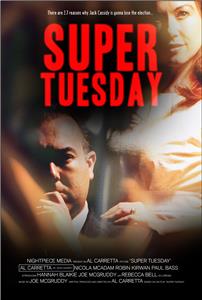
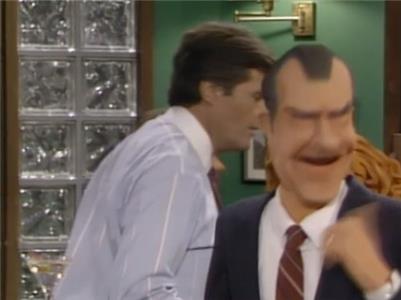

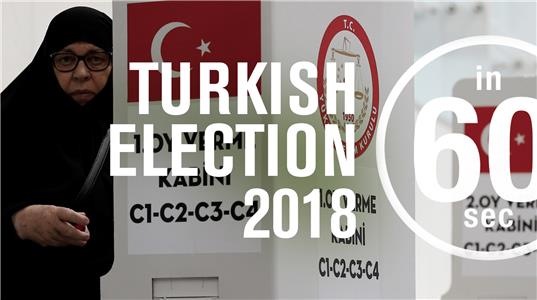
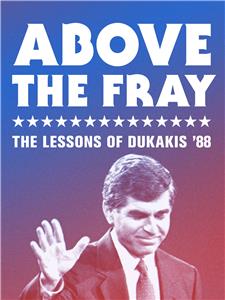
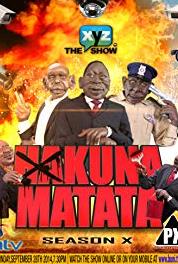
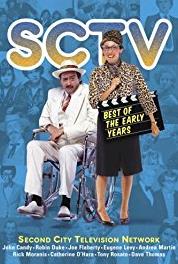
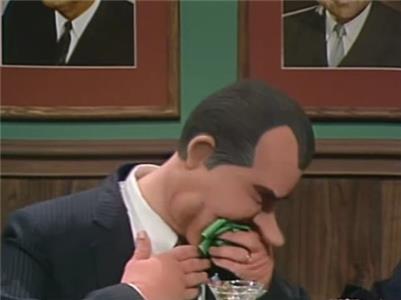
User reviews